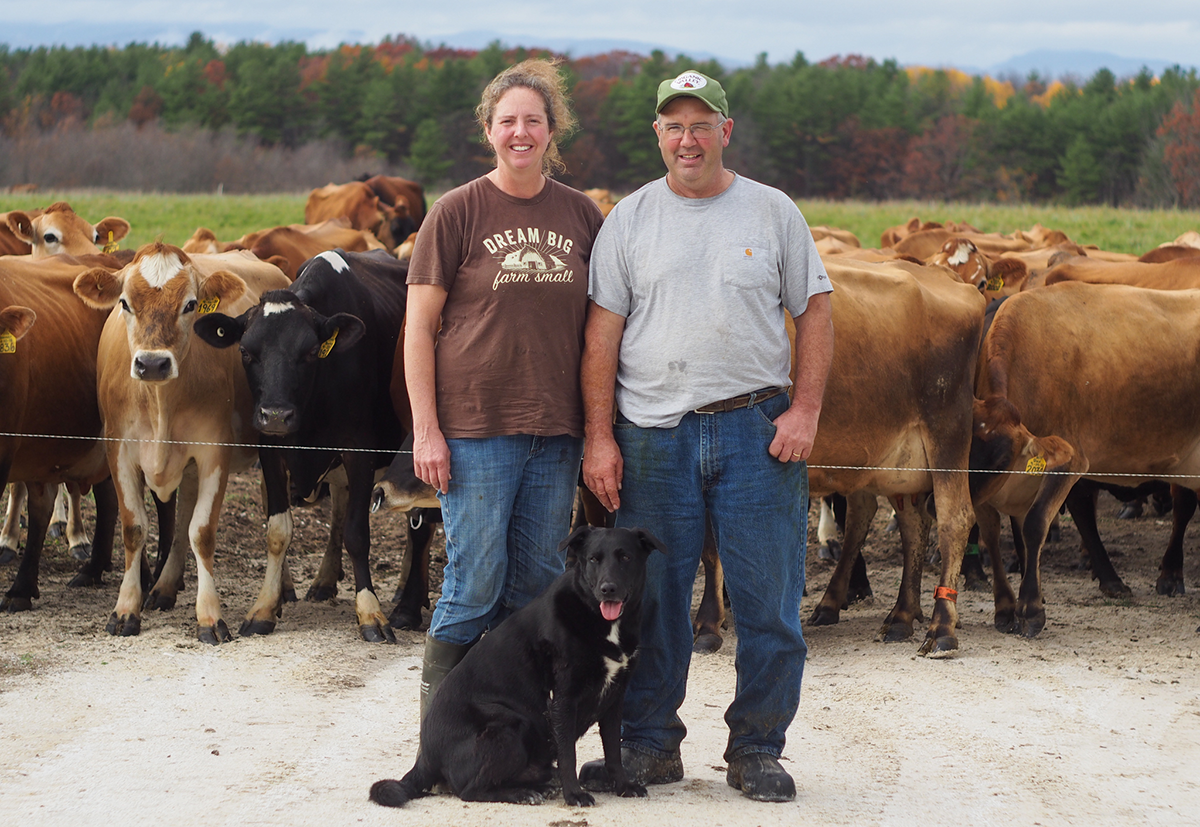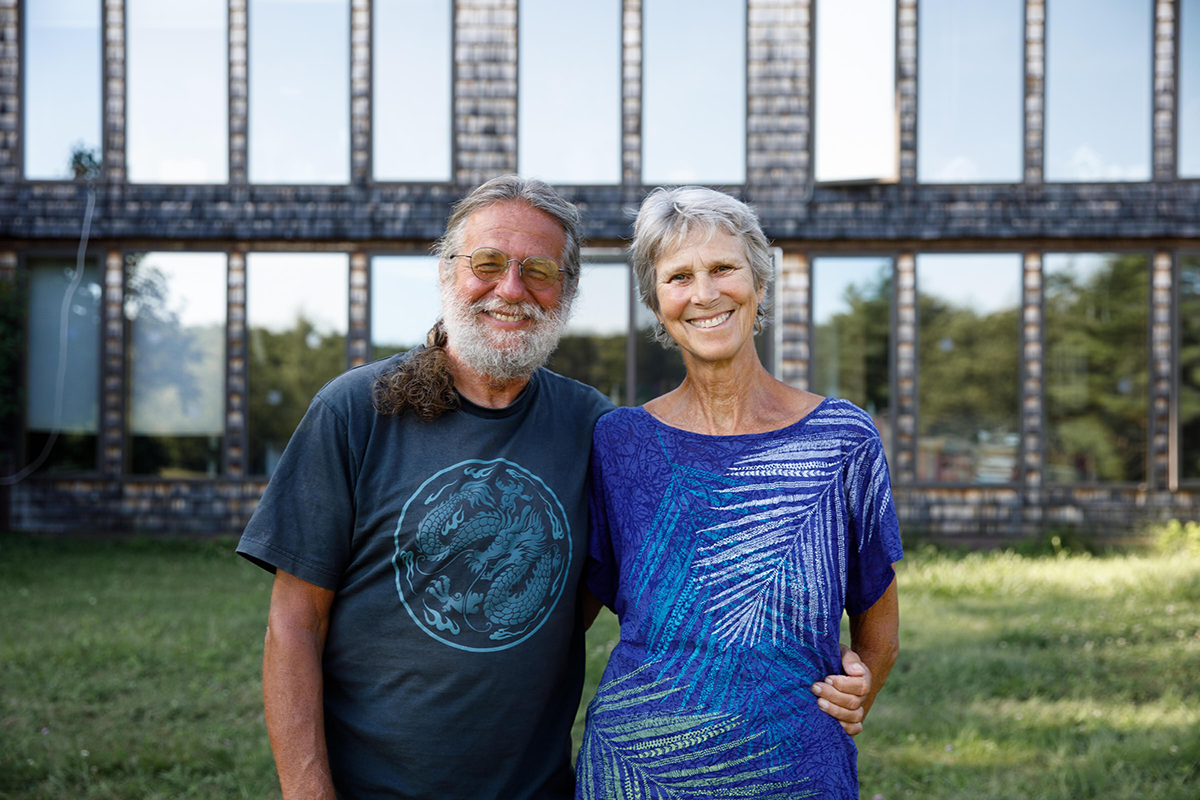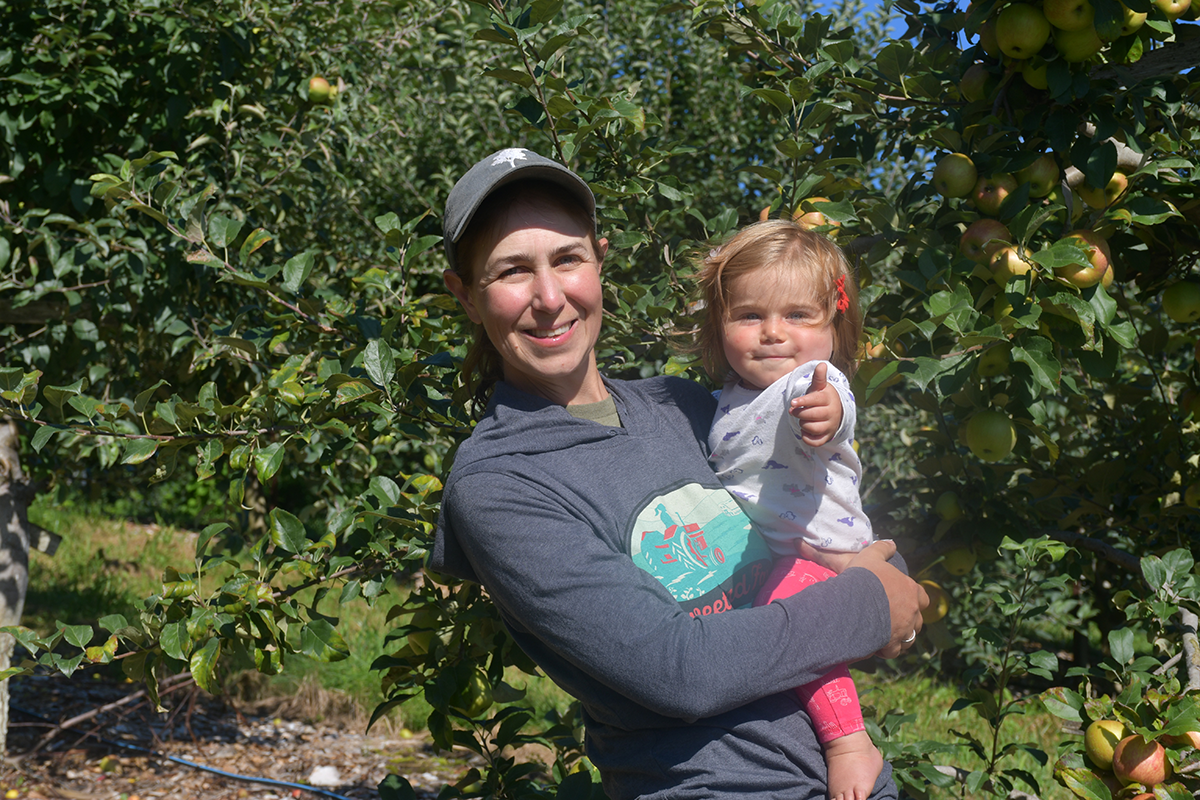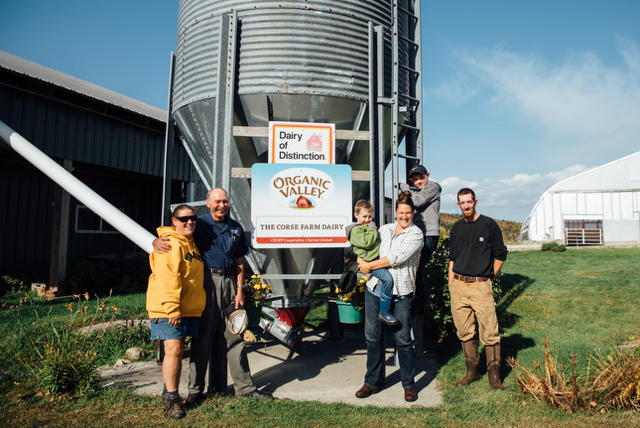Four finalists have been selected for the 2024 New England Leopold Conservation Award.
The award honors farmers and forestland owners who go above and beyond in their management of soil health, water quality and wildlife habitat on working land.
Named in honor of renowned conservationist Aldo Leopold, this award also recognizes landowners who inspire others with their dedication to environmental improvement. In his influential 1949 book, A Sand County Almanac, Leopold called for “a land ethic,” an ethical relationship between people and the land they own and manage.
Sand County Foundation and national sponsor American Farmland Trust present the Leopold Conservation Award to private landowners in 28 states. In New England. the $10,000 award is presented with New England Forestry Foundation, and American Farmland Trust-New England.
The finalists are:

Harrison’s Homegrown of Addison, Vermont
Harrison’s Homegrown of Addison, Vermont | Melanie and Patrick Harrison have transformed what was a degraded land base, into a thriving organic, pasture-based dairy. Perennial hay and pasture keep soil covered to prevent erosion and protect water quality. Trees planted along riparian areas provide wildlife habitat. Infrastructure improvements to prevent runoff, including a concrete barnyard and a leachate pit. Cattle are rotationally grazed to benefit soil health.

Hidden Valley Farm of Whitefield, Maine
Hidden Valley Farm of Whitefield, Maine | David Moskovitz and Bambi Jones have made their land more productive while enhancing biodiversity and wildlife habitat with exemplary forestry management practices. They have replaced stream crossings to enhance aquatic organism passage, protected small wetlands, and created the Hidden Valley Nature Center, which offers nature and forestry programs for thousands of participants.

Sweetland Farm of Norwich, Vermont
Sweetland Farm of Norwich, Vermont | Norah Lake grows orchard fruit, vegetables, and hay and raises pastured pork and poultry. Rotational grazing and cover cropping practices are used to improve soil health and reduce erosion. Wildlife corridors have been established along farm fields and riparian and wetland areas have been established and preserved. Invasive species are being eliminating from forests, and thousands of wildlife-friendly trees have been planted.

The Corse Farm Dairy of Whitingham, Vermont
The Corse Farm Dairy of Whitingham, Vermont | Leon, Linda, and Abbie Corse are organic dairy farmers who improve water infiltration with rotational grazing and no-till practices. Cattle lanes were installed to keep cattle away from wetlands and a stream to enhance water quality and wildlife habitat. Leon serves as a mentor in the national Dairy Grazing Apprenticeship Program. The Corses consult with a professional forester to manage 200 acres of forest land.
Owners of forestland and farmland in Connecticut, Maine, Massachusetts, New Hampshire, Rhode Island, and Vermont were encouraged to apply, or be nominated, for the award. An independent panel of New England agricultural, forestry and conservation leaders reviewed the applications. The award recipient will be revealed this fall.
The first New England Leopold Conservation Award was presented in 2019. Last year’s recipient was Jones Family Farms and Winery of Shelton, Connecticut.
The New England Leopold Conservation Award is made possible through the generous support of American Farmland Trust, New England Forestry Foundation, Sand County Foundation, Farm Credit East, David and Ann Ingram, LandVest, and the Yale School of the Environment.
“It is more critical than ever that our natural lands support both local economies and the natural world,” said Bob Perschel, New England Forestry Foundation Executive Director. “The finalists for New England’s sixth Leopold Conservation Award all represent excellence in land stewardship for our region’s farms and forests.”
“These award finalists are examples of how Aldo Leopold’s land ethic is alive and well today. Their dedication to conservation shows how individuals can improve the health of the land while producing food and fiber,” said Kevin McAleese, Sand County Foundation President and CEO.
“As the national sponsor for Sand County Foundation’s Leopold Conservation Award, American Farmland Trust celebrates the hard work and dedication of the New England award finalists,” said John Piotti, AFT President and CEO. “At AFT we believe that conservation in agriculture requires a focus on the land, the practices and the people and this award recognizes the integral role of all three.”
For more information on the award, visit leopoldconservationaward.org.
About the Partners
LEOPOLD CONSERVATION AWARDS recognize landowner achievement in voluntary conservation. Sand County Foundation presents the award in California, Colorado, Illinois, Iowa, Kansas, Kentucky, Maryland, Minnesota, Mississippi, Montana, Nebraska, New Mexico, New York, North Carolina, North Dakota, Oklahoma, Pennsylvania, South Carolina, South Dakota, Texas, Utah, Wisconsin, and in New England (Connecticut, Maine, Massachusetts, New Hampshire, Rhode Island, and Vermont). leopoldconservationaward.org
AMERICAN FARMLAND TRUST is the only national organization that takes a holistic approach to agriculture, focusing on the land itself, the agricultural practices used on that land, and the farmers and ranchers who do the work. AFT launched the conservation agriculture movement and continues to raise public awareness through its No Farms, No Food message. Since its founding in 1980, AFT has helped permanently protect over 6.8 million acres of agricultural lands, advanced environmentally sound farming practices on millions of additional acres, and supported thousands of farm families. farmland.org
NEW ENGLAND FORESTRY FOUNDATION – Through the application of our core expertise in conserving forestland and advancing Exemplary Forestry, New England Forestry Foundation (NEFF) helps the people of New England to sustain their way of life, protect forest wildlife habitat and ecosystem services, and mitigate and adapt to climate change. NEFF has conserved more than 1.2 million acres of forestland for future generations, actively manages NEFF-owned lands as demonstration forests and keeps more than 150 NEFF properties open to the public as Community Forests. NEFF is the sixth-largest land trust in the United States by acres conserved. newenglandforestry.org
SAND COUNTY FOUNDATION inspires and empowers a growing number of private landowners to ethically manage natural resources in their care, so future generations have clean and abundant water, healthy soil to support agriculture and forestry, plentiful habitat for wildlife and opportunities for outdoor recreation. sandcountyfoundation.org